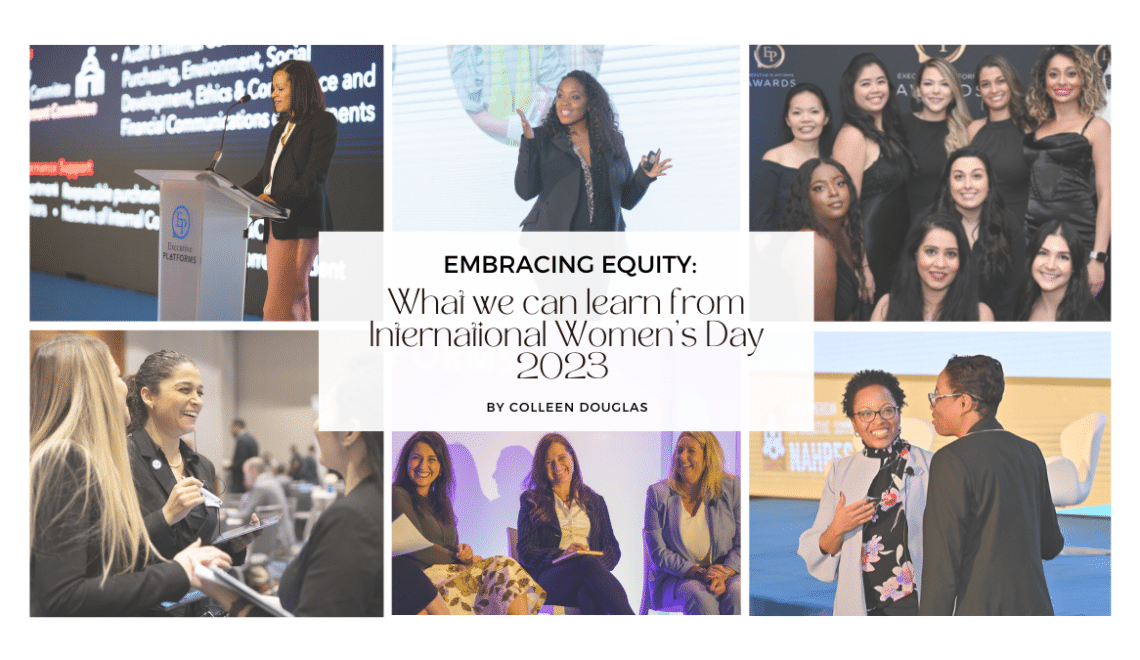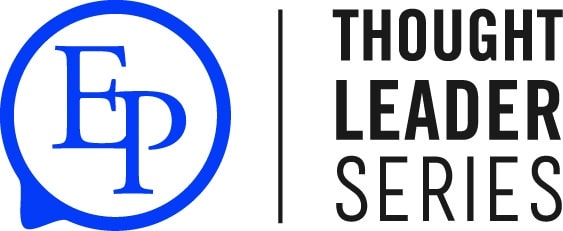
“There is no limit to what we, as women, can accomplish.”
– Michelle Obama
March 8 marks International Women’s Day (IWD) 2023, a day to reflect on the barriers facing women and the changes we can make for a better tomorrow. Each year, the IWD foundation works to celebrate women’s achievements, raise awareness for discrimination, and educate others on how to take action against inequality.
As a recent grad just starting my career, this day inspires a good amount of contemplation of the past. Had it been 50 years ago, how would my life have looked? Would I have gone to university? Would I have the same aspirations as I do now, and would I believe I could achieve them?
We’ve come a long way since the fight for gender equality began. My experience as a woman is vastly different to that of my grandmother’s, or even my mother’s. I have many opportunities that weren’t given to them, but there are also still hurdles in front of me that don’t exist for my brother.
Women continue to be underestimated in the workplace, and we are expected to work harder for the same respect that is automatically given to our male counterparts. Great work has been done to address the obstacles facing women, but more work must still be done. As we reflect on the experiences of women today, it is imperative to think towards the future as we imagine a world where women can truly feel equal.
#EmbraceEquity
This year’s IWD theme is #EmbraceEquity, aiming to start conversations on why equal opportunities are no longer enough to address the systemic barriers facing women. Equality may be the goal, but equity is the way to get there.
Hidden and inherent biases prevent women and other marginalized groups from utilizing resources in the same way as men. A culture that focuses only on providing equal resources fails to recognize individual needs, limiting what they are able to accomplish.
An equitable workplace will acknowledge the different needs of each of its employees and allocate the exact resources needed. We cannot reach equality without a concentrated effort to tear down barriers and level the playing field, and it is up to the employer to locate obstacles and make the structural changes that will allow women and marginalized groups to thrive.
Retaining Women in Leadership
In the age of the Great Resignation and quiet quitting, comes the Great Breakup. Women are leaving their leadership positions at the highest rate ever seen as they face lower pay, microaggressions, and cultures that overwork them. Their expectations of flexibility, well-being, and diversity aren’t being met, causing them to resign from companies that can’t, or won’t, meet their needs. For organizations to retain their female talent, improvements must be made.
The best way to not only retain your female talent, but to also attract those leaving their current positions, is to focus on building equity into workplace policies. Identifying the areas within your organization where women and other marginalized groups may require different resources than men, and adapting your policies, will improve overall work satisfaction and support all employees.
For example, 20% of women say they’re often the only woman in the room and they feel blocked from senior ranks by already established all-male lines of succession. Offering more opportunities for employee training and development, as well as creating policies that ensure all qualified employees are considered for promotions, may create more opportunities for female leadership within a company.
Additionally, women are often still the primary caregivers and homemakers outside of working hours. This means they often have more responsibilities outside of the office than their male counterparts and require more flexibility from their jobs. In order to attract and retain female talent, organizations should work to ensure they can offer a good work/life balance that won’t push the boundaries of their employees, including offering remote work options and an extensive PTO policy.
Celebrating Women’s Achievements
One of my favorite parts of working for Executive Platforms is getting to celebrate the achievements of the women who speak at our summits. We’ve had the pleasure of working with and learning from hundreds of hard-working and successful women who have contributed unique value to each of our events.
It’s one thing for me to write about how we can create more women in leadership, but it’s another to learn straight from the source. I’ve compiled a list of some recent EP Thought Leaders Series sessions and conversations about about Diversity, Equity, Inclusion below:
Fireside Chat: Purpose At Work: How Google Is Forging a New Frontier for Diversity and Inclusion
Melonie Parker of Google
Fireside Chat: The Power of Diversity Through Inclusive Leadership
Alicia Boler Davis of Amazon and Gerald Johnson of General Motors
Underrepresented or Institutionally Failed? Building in DE&I as a Strategy for Growth
Shelly McNamara of Procter & Gamble
Progressing Global Inclusion and Diversity Ambitions Locally
Laura Watt of Diageo North America
Inclusive Talent Management
Karin Raguin of LVMH
Talent, Diversity, and Professional Development for Finance Executives
Sharice Jessup of Becker
Of course the examples we highlight should not just be about the work being done to include women in more leadership roles. Women already play important roles in every industry as they guide organizations through a wide range of business issues and developments. They lead mergers, head initiatives, and write policies. Their work can often go unnoticed by society, but today let’s appreciate that work. Below is a sample of some of our favorite keynotes from various Executive Platforms events by some of the influential women we’ve had the pleasure of working with:
Fireside Chat: Integrating Sustainability Across Your Business
Jane Ewing of Walmart and Page Motes of Dell Technologies
Accurately Describing a Product’s Environmental Footprint and Enabling Informed Consumer Purchasing Decisions
Marissa McGowan of L’Oreal
The Workforce is Hybrid. Are You Ready?
Jennifer Saavedra of Dell Technologies
Effective Strategies to Launch and Manage Second-Chance Employment Initiatives
Pat Rowan of Procter & Gamble
Moderna: The Rise of mRNA Vaccines – CMC Operations During a Once-in-a-Lifetime Pandemic
Tara Jones of Moderna
Fireside Chat: Building the Future from a Distinguished Tenure in CMC
Ann Lee of Prime Medicine and Alison Moore of Allogene
Supplier Risk Management and Building Quality Culture within New Integrations
Carolyn Nguyen of Mondelēz International
Continuing Progress
The World Economic Forum’s Global Gender Gap Report shows that it will take another 151 years before we reach workplace equality. With stats like that, it’s essential that workplaces start making meaningful change towards equity now.
But it’s not all bad. The generations ahead of me have had a much different experience than I have, and so will the generations after me. We’ve been steadily making progress for centuries, and progress will continue for generations to come.
If you take anything from this article, I hope that it’s a sense of optimism for the future – and the fire of action. The foundation has been laid already, it’s time now to make the systemic changes that will lead us to equality.
—
Colleen Douglas
Coordinator, Marketing
Executive Platforms
Colleen joined the Executive Platforms team in May of 2022. She has three years of experience in event marketing, with an emphasis on copywriting and digital strategies.
Colleen has a BA Honours in Business Communications from Brock University and a Diploma in Digital Media Marketing from George Brown College.













